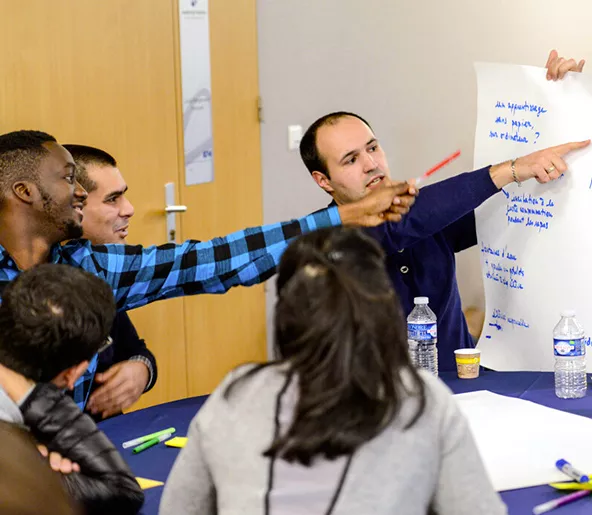🚀 Open House: Join us on January 31 in Nantes or February 7 in Paris!
Come with questions, leave with new perspectives. Tour our campuses, chat with our students, and ask our teams your questions.
Come with questions, leave with new perspectives. Tour our campuses, chat with our students, and ask our teams your questions.
One of the objectives of our school is to promote the development of knowledge in the field of Corporate Social Responsibility. To this end, it brings together professors and researchers from Audencia and other institutions working in this field.
In close collaboration with companies and other stakeholders, research projects aim not only to develop theoretical knowledge on CSR, but also to help design and implement CSR approaches in the field, proposing appropriate models and tools.
Through this work, the School aims to participate in and contribute to the debate on responsible management and the challenges of sustainable development.


Audencia's research topics explore many areas directly or indirectly related to CSR, including sustainable development and business ethics. Each in its own way contributes to the development and thinking about the relationship between business and society.
CARES est un espace collectif où la recherche, l’enseignement et le débat se rencontrent pour éclairer les grandes transitions de notre temps.
En réunissant des enseignants-chercheurs de tous les départements d’Audencia, CARES fait dialoguer les disciplines, croise les regards et ouvre des voies nouvelles pour comprendre et transformer les modèles de gestion au service d’un impact environnemental et social durable.